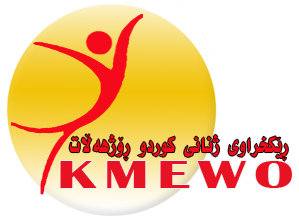KMEWO:post2
KMEWO Calling for Signatures stand Against the Proposed Amendments to the Iraqi Personal Status Law of 1959: A Step Backwards
In light of the current discussions about the amendments to the Personal Status Law of 1959 in Iraq, Kurdish and Middle Eastern Women’s Organisation (KMEWO) has expressed its concern that if they were to be implemented, it would represent a significant setback for the fundamental human rights of women and children.
In particular, the proposed amendments to the Personal Status Law of 1959 include:
The proposed amendments to the Personal Status Law of 1959 would allow couples to choose the religion of their spouse, thereby determining which religious laws would govern the marriage. In the event of a conflict, the husband’s faith will prevail. The current legislation does not explicitly state the sect of the religion in question, but rather implies it. If a parent converts to Islam, their children under the age of 18 are also required to convert to Islam. In accordance with the current Iraqi legislation, the legal age for marriage in which at least one spouse is 18 years old. However, in certain circumstances, a judge may approve a marriage between at least one spouse who is 15 years old. The proposed amendments would legitimise child marriage, reducing the age of 15 years old to 9 years old or even younger. Furthermore, it is stipulated that marriages conducted outside the court may be automatically recognised by the court, thereby conferring validity upon them. The amendment will affect the provision of child custody. In the event of a divorce, mother would retain custody of the child until the age of seven. However, should the divorced mother choose to remarry, the child would be taken from her immediately or upon turning two. In cases of the father’s absence or death, the court may grant custody to the grandfather. This suggests that the objective of this amendment is not to prioritise the best interests of the child, but to restrict women’s freedom to request divorce and remarry. Regarding alimony, the new amendment proposes that a woman would not be entitled to alimony if she decides to leave her husband’s house. The legalisation of temporary marriages will be now in effect. In accordance with the current Iraqi legislation, any marriage conducted outside of a court is considered invalid and is subject to penalties. The revised legislation suggests that this marriage can be conducted outside of the court, with the court subsequently approving it, thus making it valid. The proposed amendments are a significant setback for women’s and children’s fundamental rights and dignity. The implementation of this legislation will exacerbate gender inequalities and have a detrimental impact on children, particularly girls, who will be deprived of their fundamental right to education and their childhood by entering valid marriages at an incredibly young age. Furthermore, it raises concerns about the capacity of a child of nine years of age to make well-informed decisions about their future. Motherhood will be at significant risk and subject to criteria that may not always be objective. These proposals have sparked a strong reaction from women’s and human rights organisations, as well as activists in Iraq and around the globe. The Kurdish and Middle Eastern Women’s Organisation (KMEWO) is a UK-based organisation that advocates for the rights of Kurdish, Middle Eastern and North African (KMENA) women. KMEWO condemns any act that legalises women’s and children’s rights violations and stands in solidarity with sister organisations and activists worldwide who work tirelessly to promote and protect human rights when these are not fully respected. Please support us to prevent this shameful provisions from becoming legislation and sign this statement.
Sawsan Salim Director, KMEWO

Sawsan Salim Director, KMEWO

Quick Links:
- Funders & Supporters
- Impact
- Our principles
Quick Links:
- Funders & Supporters
- Impact
- Our principles

